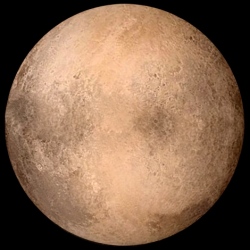
“There’s not another mission like this in our time,” said New Horizons principle investigator Alan Stern in the days before the flyby of the dwarf planet Pluto. “We’re the only 21st century team that’s planning to explore a frontier ‘planet’, and no one’s planning to do it again.”
In the past 50 years, American spacecraft have visited every major component of our solar system. Will the kids of tomorrow know what it’s like to see a planet unveiled for the first time? During the Pluto flyby, John Grunsfeld, from NASA’s science mission directorate, suggested that, 500 years from now, this time period will be considered the golden age of space exploration, similar to the European age of exploration. “There’s very little terra incognita left in our solar system today,” he said.
Earthly exploration didn’t stop when the Europeans shouted “Land ho!”, and neither will our exploration of the solar system. It’s just about to kick into a new gear. The outer solar system is the next frontier. This sentiment was echoed again and again by scientists at the New Horizons flyby (although admittedly it may be a biased sample, since scientists interested in the outer solar system were probably more likely to attend the Pluto event).
With its main mission ended, the New Horizons spacecraft may win additional funding to explore a new object in the Kuiper Belt, the ring of rocky debris that’s home to Pluto and many other frigid dwarf planets. Other worlds of interest include: Jupiter’s moon Europa, home to a huge subsurface ocean; Enceladus, which has geysers spewing out water, methane, and nitrogen; and Eris, a dwarf planet that’s larger than Pluto.
“There is this sort of underground sentiment that we do need to get back to the outer solar system, but it’s hard,” said Heidi Hammel, executive vice president of the nonprofit Association of Universities for Research in Astronomy. “We’re just working now on identifying the technologies that will enable those missions to be not so long, not so expensive. New Horizons has set the standard for that. So we hope that with New Horizons under our belt, we can try to crack open the outer solar system so that we can get back there again.”
